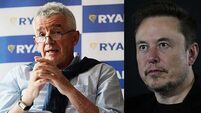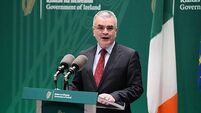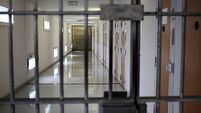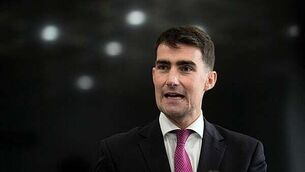Candidates grilled on vision for presidency as race begins in earnest
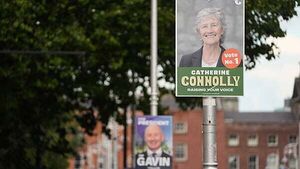
By Gráinne Ní Aodha, PA
The three candidates vying to become the next president have been grilled on what they have said would be their vision if they became the next head of state.
Left-wing independent Catherine Connolly, who is backed by Sinn Féin and other opposition parties, said she would not call for a border poll in the next decade.
Fianna Fáil candidate Jim Gavin said he wanted to be “a positive president”, while Fine Gael’s Heather Humphreys rejected the label “establishment” for herself and said she instead preferred “experienced”.
The three candidates were all asked about their views on the presidency on RTÉ Radio, in the first series of broadcast interviews after the deadline for nominations closed at noon on Wednesday.
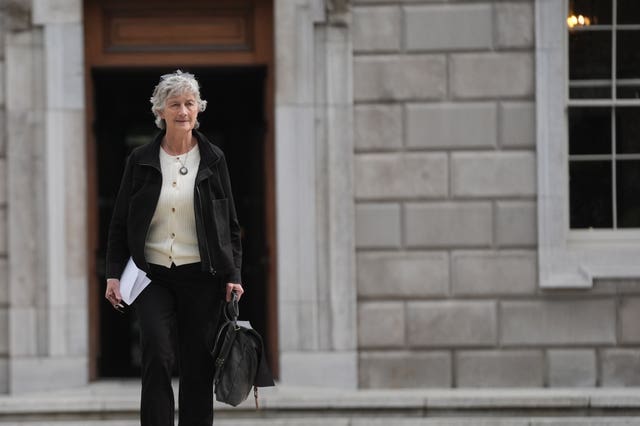
Ms Connolly, a former clinical psychologist, from Galway, told the Drivetime programme it would be an “utter privilege” to be president of Ireland.
Asked about a border poll, she said she would “leave that to the politicians” and would be using her voice “to reflect the constitution” as a president.
Asked whether a border poll should be held within a decade, she said: “Mary Lou (McDonald) has called for that, I have never called for a border poll.”
Ms Connolly was also asked about her communication skills after she came under scrutiny for comments she made about Hamas’s role in a future Palestinian state.
She said: “I think my communication is excellent, I think the difficulty is I speak bluntly, honestly and I always speak after reflection and after I’ve done my research.
“My record in the Dáil is second to none, I’ve never missed a day.
“I didn’t use the word ‘expert communicator’, but I speak honestly and with integrity every time I speak, and I do my best to answer every single questio,n and I will continue to do that.”
She said that as president, she would have “the courage to stand up”, reflect the values of the Irish people, and call for peace across the world.
“I think I’ve always appealed to people across all sides, and I think I showed that as leas cheann comhairle, I stood and was elected, the first female leas cheann comhairle.
“I’m saying I am an inclusive candidate. I think I appeal to people from different backgrounds completely and I’ve shown that all my life.”
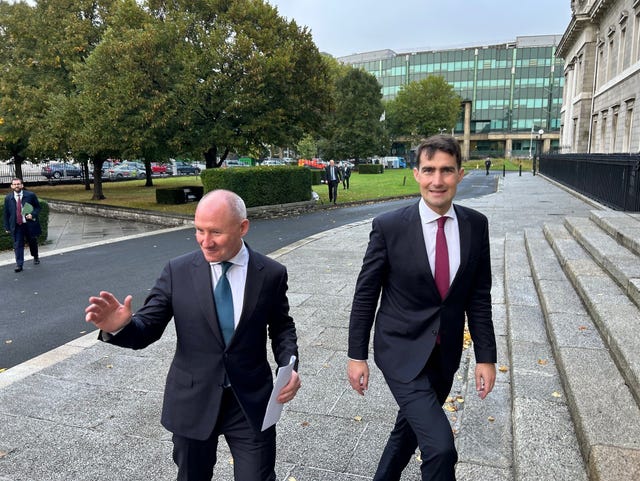
Mr Gavin said he wanted to be “a positive president” who focused on “a positive message, particularly in a time of division”.
The former Dublin football manager was asked how he would give a voice to those without one, and he said he had visited a women’s shelter in Navan, which was an example of the services he wanted to shine a light on.
“That’s what I see my presidency, about being energetic, about enthusiasm, about being on the ground with people every day.
“And if I’m not on the ground every day, I’m in the Áras thinking about what I need to be doing, or I’m bringing people in to speak about the challenges of our time.”
He was asked to expand on his pledge to hold forums at Áras an Uachtaráin and around the country if he became president.
“It’ll be the communities, it’ll be the volunteers, it’ll be students, it’ll be people who are in third-level education. There is no limit to who I can speak to.”
Asked what these would achieve, he said: “The president can generate ideas and shine a light on things that mightn’t be spoken about, or keep the pressure potentially on the Oireachtas to achieve goals such as meeting the challenges of homelessness or housing.”
He would not be drawn on whether coalition partners Fine Gael and Fianna Fáil would organise a voting pact to give second preferences to one another.
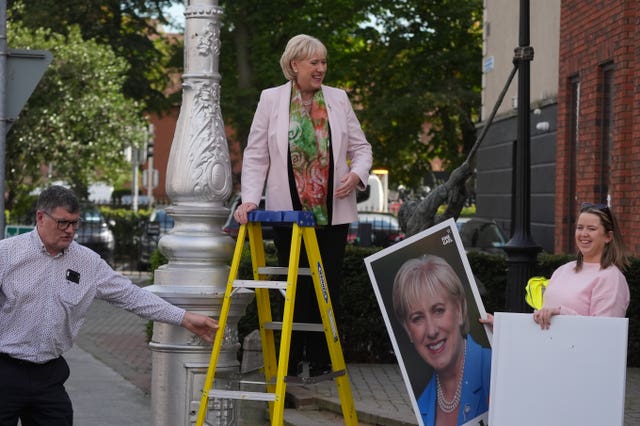
Ms Humphreys outlined her experience as a senior minister in various departments for 10 years, and said as business minister during Brexit and the pandemic, “I know how to handle a crisis”.
She said that as culture minister during the 100-year commemoration of the 1916 Rising, she led events that “really brought people together, and they gave us a great sense of national identity and pride”.
Asked if she was the most establishment candidate, she told RTÉ Radio: “Some people might say establishment, I would say experienced.
“I’d ask people to judge me on my track record in the ministries that I have held. And yes, I’m not denying of course there are challenges, and in government, there will always be challenges, and there’s always more to be done.
“But I did have the courage to step up and go into government, and some didn’t.”
Asked how she would speak about the housing crisis given her party’s role in government, she said: “Yes, I will be a voice for all the people, but I’m realistic.
“I realise what the president can do – the president can highlight, the president can speak, can they can be a voice for the nation.
“They can speak out when they see injustices and they can speak out, like the President (Michael D Higgins) has done in terms of Gaza and what has happened there. I have never been afraid to speak up for people.”
Asked about the way she answered a question about whether her husband was a member of the Orange Order, she said she was caught “a little” off-guard.
“Can I just ask you, how would you feel if you were going for a job interview and one of the first questions you got was about what your husband or your partner was doing before you met them?
“You know, how would you feel? All I can say is, you know, it might catch you off guard a little.
“I have always been open about who I am and where I come from, and that’s why I think I’m uniquely placed to reach out the hand of friendship to both nationalist and unionist traditions in Northern Ireland.
“And I want to build on the great work of Mary McAleese. I want to work to build bridges across communities.
“I do want to facilitate a much deeper understanding of all traditions on this island, and I want to be a president for everyone in this country, regardless of who they are.”
